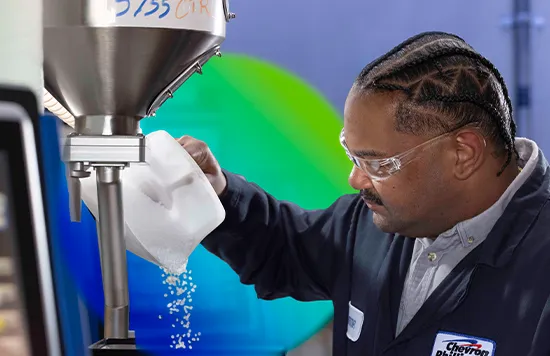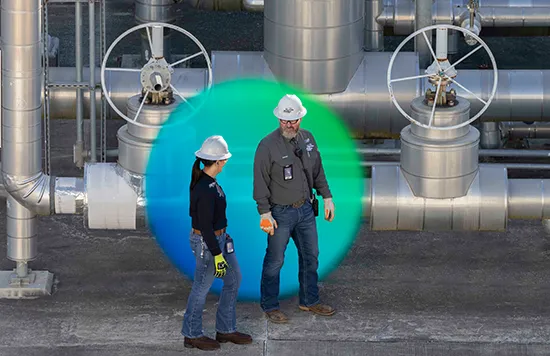Under the Microscope
CPChem’s Research & Technology teams innovate, test and advance a pioneering legacy that drives progress within the company and across the industry. These teams collaborate with industry partners and academic institutions to research, develop, and assess emerging technologies, such as plastics recycling.
Through the R&T Management Sponsored Research program, researchers can propose groundbreaking ideas and apply for funding to accelerate the study, development, and potential commercialization of novel approaches to sustainability. In 2024, greater than half of CPChem’s MSR program funds were allocated to projects aimed at enhancing the circularity of plastics.
CPChem fosters a culture of ingenuity, celebrating and incentivizing creativity and agility. CPChem teams are tasked with transforming innovative ideas and suggestions from employees into reality, driving the company’s evolution through 2024 and beyond. SDG #9, Industry, Innovation and Infrastructure

CPChem Senior Scientist Max McDaniel Honored with Perkin Medal
Max McDaniel, senior fellow scientist at Chevron Phillips Chemical’s Bartlesville, Oklahoma, Research and Technology Center and an expert in polyolefin catalysts, was awarded the Perkin Medal in 2024, the highest honor for applied chemistry in the nation. While McDaniel is well known as an industry expert in polyolefin catalysis, especially in the areas of chromium catalysts and metallocene catalyst supports, his influence has extended across CPChem proprietary technologies, including the development of the 1-hexene process, the metallocene PAO process and more recently the reactivation process for the Aromax® II Catalyst.
In 2024, McDaniel was also awarded his 500th U.S. patent.
Lower Carbon Products and Processes
CPChem uses Life Cycle Assessments to measure the environmental impact of its products throughout their lifecycle, from material sourcing to production, intended use, and end-of-life/recycling. These assessments are used internally to provide valuable insights and detailed data.
We are conducting LCAs across all product lines to assess carbon footprints and other environmental impacts. This data helps identify opportunities to reduce emissions, decrease water consumption, and use energy more efficiently. By leveraging this data-driven approach, we aim to enhance the sustainability of our products and strengthen CPChem’s portfolio resilience throughout any economic environment.


